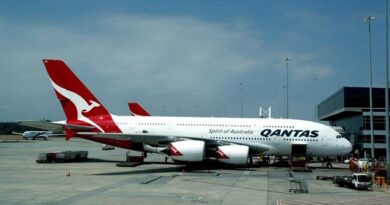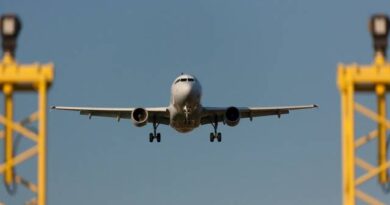What is Blockchain and Blockchain Applications in Aviation
Blockchain is a distributed ledger technology (DLT) that can be used to record transactions securely and transparently. It is best known as the technology behind Bitcoin, the first cryptocurrency, but it has many other potential applications. So What is Blockchain and Blockchain Applications in Aviation.
In the aviation industry, blockchain technology can be used to improve efficiency, security, and transparency. Some of the potential applications of blockchain in aviation include:
- Maintenance and repair: Blockchain can be used to track the maintenance history of aircraft, ensuring that all required maintenance is performed and that parts are not counterfeit.
- Supply chain management: Blockchain can be used to track the movement of parts and supplies throughout the aviation supply chain, improving efficiency and reducing the risk of counterfeiting.
- Identity management: Blockchain can be used to create a secure and tamper-proof record of passenger identities, reducing the risk of fraud and identity theft.
- Flight data recording: Blockchain can be used to record flight data in a secure and tamper-proof way, improving safety and transparency.

Benefits of Blockchain in Aviation
There are several potential benefits of using blockchain in aviation, including:
- Improved efficiency: Blockchain can help to improve efficiency in a number of areas, such as maintenance and repair, supply chain management, and identity management.
- Enhanced security: Blockchain can help to enhance security by providing a tamper-proof record of transactions.
- Increased transparency: Blockchain can help to increase transparency by providing a shared view of data among all authorized participants.
- Reduced risk of fraud: Blockchain can help to reduce the risk of fraud by making it difficult to tamper with data.
Challenges of Implementing Blockchain in Aviation
There are also some challenges associated with implementing blockchain in aviation, including:
- Technical complexity: Blockchain technology is complex and can be difficult to implement.
- Regulatory uncertainty: The regulatory landscape for blockchain is still evolving, which can create uncertainty for businesses.
- Standardization: The lack of standardization around blockchain can make it difficult for businesses to adopt the technology.
Despite these challenges, blockchain has the potential to revolutionize the aviation industry. As the technology matures and the regulatory environment becomes more clear, we can expect to see more and more blockchain applications in aviation in the years to come.
In addition to the above, here are some additional potential applications of blockchain in aviation:
- Aircraft tracking: Blockchain can be used to track the location of aircraft in real time, improving safety and efficiency.
- Fuel management: Blockchain can be used to track and manage fuel consumption, reducing costs and improving environmental sustainability.
- Cargo tracking: Blockchain can be used to track the movement of cargo throughout the aviation supply chain, improving efficiency and reducing the risk of theft.
Conclusion
Blockchain is a powerful technology with the potential to transform the aviation industry. As the technology matures and the regulatory environment becomes more clear, we can expect to see even more innovative applications of blockchain in aviation in the years to come.
References:
https://www.airport-technology.com/comment/how-the-aviation-industry-can-tap-into-the-benefits-of-blockchain/?cf-view
https://www.iata.org/contentassets/2d997082f3c84c7cba001f506edd2c2e/blockchain-in-aviation-white-paper.pdf
https://www.aviationtoday.com/2023/04/06/opinion-how-the-aviation-industry-can-tap-into-blockchain-technology-benefits/
www.aviationfile.com


